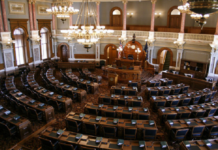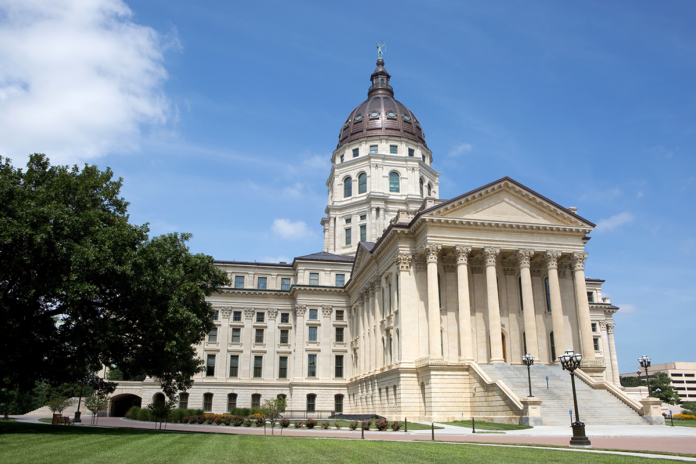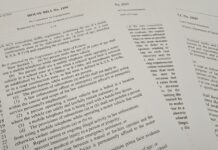Gov. Laura Kelly on Wednesday directed 15,000 executive branch employees to work remotely again, signaling yet another sign of the gravity of the spread of the COVID-19 variant.
“The decision to return to remote work was not made lightly – but we know that this is a necessary step to prevent COVID-19 infections,” Kelly said in a statement.
“I am confident that our state employees will continue to provide quality services to all Kansans who need them,” she said.
Executive branch employees will work remotely through Oct. 4, when the health climate will be reassessed to determine whether employees can return to work.
The transition to remote work may begin as soon as possible but must be completed no later than the close of business Sept. 3.
A spokesman for Senate President Ty Masterson, chairman of the Legislative Coordinating Council, said late Wednesday that employees who work for the Legislature would not be ordered to work from home.
It was immediately unknown late Wednesday whether the judicial branches would follow the governor’s lead as well as other statewide elected officers.
When the pandemic started a year ago, Kelly shifted state agencies to remote work where that was possible starting in late March 2020.
In June, after a significant decline in daily COVID-19 cases, state employees began returning to state office buildings.
The Kelly administration hopes that moving to remote work again will help keep the spread of the virus in check as infections start to rise again this summer.
Onsite staffing will be limited to only those necessary to safely conduct agency operations, the governor’s office said.
Mask requirements, social distancing and other mitigation measures will remain in place for employees whose jobs must be performed on-site.
Public offices serving customers will be encouraged to reinstitute mitigation measures that were previously used during the pandemic, such as scheduling by appointment or making allowances for virtual as opposed to in-person interactions.
Kelly’s approach is not as heavy handed compared to other states that are requiring their employees to show they’ve been vaccinated or risk losing their jobs.
Democratic Minnesota Gov. Tim Walz last week imposed a vaccine mandate for state workers.
Republican Massachusetts Gov. Charlie Baker also ordered thousands of state workers to demonstrate they’ve been vaccinated or risk losing their job, a move that brought push back from state corrections workers.
Maryland and Virginia also are requiring vaccines for state employees, and Republican Gov. David Ige of Hawwii has imposed a vaccine mandate for state and county workers.
On a more local level, Johnson County recently started requiring its employees to prove they’ve been vaccinated or submit to weekly testing.
















